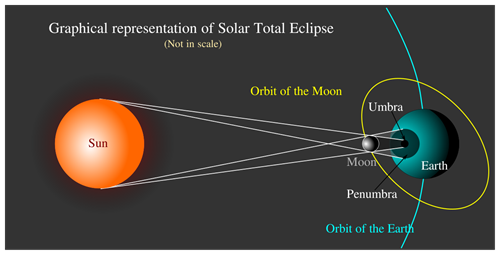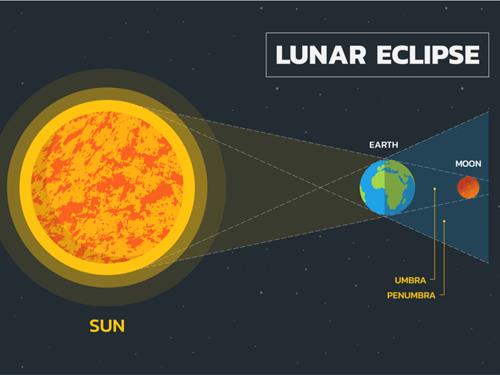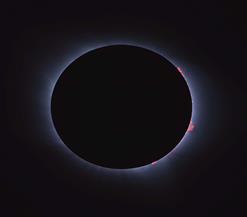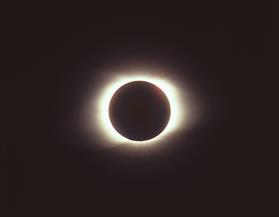
PUMPA - SMART LEARNING
எங்கள் ஆசிரியர்களுடன் 1-ஆன்-1 ஆலோசனை நேரத்தைப் பெறுங்கள். டாப்பர் ஆவதற்கு நாங்கள் பயிற்சி அளிப்போம்
Book Free DemoAn eclipse happens when heavenly bodies cast shadows on one another. Now, we will discuss about:
- Solar eclipse
- Lunar eclipse
Solar Eclipse:
We know that our earth revolves around the sun, and the moon revolves around the earth. Hence, there is a possibility that either the earth coming between the sun and the moon, or the moon coming between the earth and the sun.
When the moon comes between the earth and the sun during their motion, the shadow of the moon falls on the earth. This is called a solar eclipse.
When the moon comes between the earth and the sun during their motion, the shadow of the moon falls on the earth. This is called a solar eclipse.

Solar eclipse
There are four types of solar eclipses.
- A total solar eclipse is visible in the umbra region of the moon's shadow.
- A partial eclipse is visible in the penumbra region.
- An annular solar eclipse occurs when the umbra fails to reach the earth.
- In a hybrid solar eclipse, some parts of the earth see the annular solar eclipse, and at the same time, some others parts of the earth see the total solar eclipse.
Lunar Eclipse:
When the earth comes in between the sun and the moon during their motion, the shadow of the earth falls on the moon.
A total lunar eclipse is visible when the moon is in the umbra region of the shadow of the earth, and a partial lunar eclipse is visible when the moon is in the penumbra region.
A total lunar eclipse is visible when the moon is in the umbra region of the shadow of the earth, and a partial lunar eclipse is visible when the moon is in the penumbra region.

Lunar eclipse
Let us look at some interesting differences between the solar and lunar eclipse:
Solar eclipse | Lunar eclipse |
| It is dangerous to see a solar eclipse with the naked eye. | One can see the lunar eclipse with the naked eye. |
| It may cause permanent damage to the eye. | It cannot cause any damages to the vision. |
| A solar eclipse always occurs on the new moon day. However, a solar eclipse does not occur every new moon day. | A lunar eclipse always occurs at full moon night. However, a lunar eclipse does not occur every full moon night. |
 Solar eclipse |  Lunar eclipse |
A solar eclipse does not occur every new moon day, and a lunar eclipse does not happen every full moon night. Why?
This is because the sun, the moon, and the earth do not come in a straight line every new moon and full moon.
Reference:
https://commons.wikimedia.org/wiki/File:Total_Solar_Eclipse_Graphics_En_01.svg
https://photostockeditor.com/image/eclipse-lunar-eclipse-digital-wallpaper-garden-valley-14135
https://commons.wikimedia.org/wiki/File:Total_solar_eclipse_of_March_9_1997.jpg